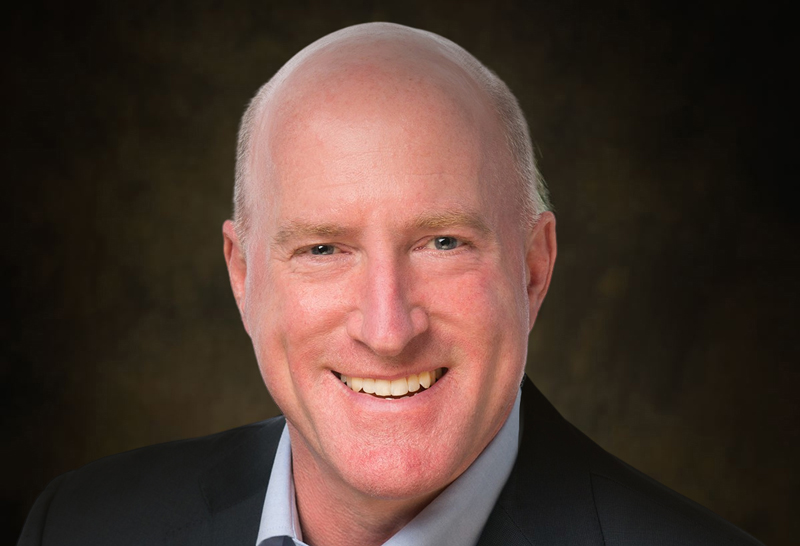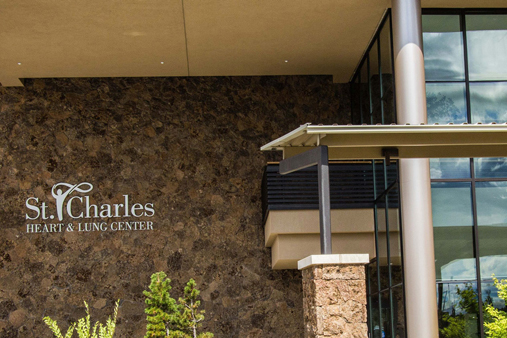In basketball, there’s a big difference between shooting two free throws in practice and shooting two free throws in the final seconds of a game when your team is down by two, with fans screaming, hearts pounding and a championship on the line.
Similarly, there’s a big difference between practicing life-saving measures on a training manikin in a quiet classroom and practicing those same measures in a hectic and unpredictable situation with lives on the line.
Central Oregon Community College’s new medical simulation center can’t help you sink your pressure-packed free throws, but it will provide emergency health care providers across the region with incredibly lifelike training opportunities, narrowing the realism gap between classroom education and real-world trauma response.
“This is the next level of education that is going to help make people feel more prepared for these kinds of low-frequency, high-stress scenarios,” said Dr. Ryan Petersen, an emergency medicine specialist with St. Charles.
“The more ‘real life’ the scenarios are, the better the training, and part of that is the anxiety,” he continued. “That’s a hard thing to create, because when you feel like it’s fake, the anxiety is not really there. But when the manikin is crying and its eyes are rolling around or something, that’s when you feel like, ‘Wow, this is what’s going to be happening in reality.’”
The medical simulation center — colloquially known as a “sim” center — is a cutting-edge lab that provides experiential learning in specialty areas such as pediatric trauma, birth complications and mass casualty response. A partnership between COCC, St. Charles’ continuing medical education program and Cascades East Area Health Education Center, the sim center held its first training session for professionals and students in March.
That’s when Petersen, an emergency medicine specialist with St. Charles, ran a training on dealing with difficult airways. Afterward, he said every Central Oregonian will benefit from the innovative equipment and programming at the sim center because emergency response agencies from across the region will use it for training.
“I work closely with a number of fire and EMS organizations in the region, and a lot of the rural areas don’t have access to anything like this, so they’ll definitely benefit from it,” he said. “It’s just a great thing that St. Charles and COCC got together to provide this for the community.”
The center’s technology includes a high-fidelity birthing simulator with infant manikins and other innovative learning tools — purchased with a $350,000 grant from Oregon Health & Science University’s rural-focused Area Health Education Centers program — to be used by EMTs, paramedics, ER physicians, nurses and others from throughout the region’s rural-serving medical community.
“St. Charles is excited to build upon our relationship with Central Oregon Community College,” said Ellie Cuff, supervisor of continuing medical education at St. Charles. “This simulation center will provide a central location for training health care professionals from across Central and Eastern Oregon, and for preparing health care students to enter the workforce.”
The center, based in the college’s Cascades Hall, is being coordinated and taught in conjunction with COCC’s paramedicine department, led by David Schappe, EMT/paramedicine program director, who helped bring the simulation center to life.
March’s initial session prioritized training professionals in medically underserved communities. Attendees of the inaugural session included medical staff from AirLink Critical Care Transport, St. Charles and other health care entities — some traveling from as far away as Black Butte and Spray — as well as second-year COCC nursing students.
Petersen said he is excited to watch programs at the sim center grow and develop in the future.
“For my area of specialty, I’m just kind of touching the surface of what we can do. The scenarios you can run there are pretty much endless,” he said. “It went fantastically, and I think word is going to get out about what awesome training is available and it’s just going to get bigger and better.”
The simulation center’s trainings are being held quarterly, with the next session planned for June. For more information, contact Schappe at 541-383-7751 or [email protected].





